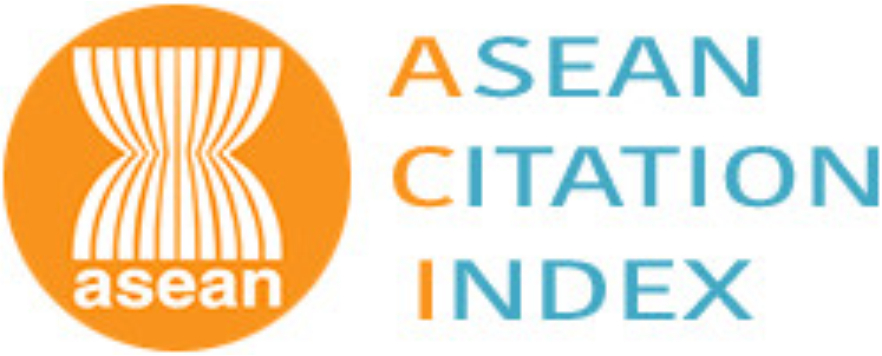Yếu tố ảnh hưởng đến sự hài lòng đối với công việc của người giao hàng nữ ở nước đang phát triển
Email:
lamhv@utt.edu.vn
Từ khóa:
người nữ giao hàng, logistics đô thị, giao hàng chặng cuối, sự hài lòng với công việc, Người nữ giao hàng, logistics đô thị, giao hàng chặng cuối, sự hài lòng với công việc
Tóm tắt
Sự hài lòng trong công việc là một chủ đề thu hút sự quan tâm rộng rãi của cả những người làm việc trong các tổ chức và những nhà người nghiên cứu. Sự hài lòng của người giao hàng nữ đối với dịch vụ giao hàng chặng cuối hiện là một khoảng trống nghiên cứu vì người giao hàng nữ hiện là lực lượng lao động mới nổi của lĩnh vực này. Nghiên cứu này được thực hiện trên cơ sở mô hình nghiên cứu được xây dựng trên trên cơ sở lý thuyết về yêu cầu và nguồn lực công việc (Job-Demands Resources) và dữ liệu từ 395 người giao hàng nữ được thu thập trong tháng 11/2024 tại Hà Nội, Việt Nam. Kết quả áp dụng phương pháp mô hình phương trình cấu trúc trên cơ sở bình phương tối thiểu riêng phần chỉ ra rằng các yêu cầu công việc và sự kiệt sức trong công việc làm giảm sự hài lòng. Trong khi đó, các nguồn lực công việc làm tăng sự hài lòng. Đáng chu ý, tác động của nguồn lực công việc là lớn nhất trong các yếu tố. Người giao hàng nữ sử dụng xe máy số và đã lập gia đình có xu hướng hài lòng nhiều hơn với công việc. Trên cơ sở các yếu tố ảnh hưởng, các hàm ý về chính sách được đề xuất thể tăng cường sự hài lòng đối với công việc của người giao hàng nữTài liệu tham khảo
[1]. P. Spector, Job Satisfaction: Application, Assessment, Causes, and Consequences, SAGE Publications, Inc., 2455 Teller Road, Thousand Oaks California 91320 United States, 1997. https://doi.org/10.4135/9781452231549
[2]. M. Price, Job satisfaction of registered nurses working in an acute hospital, Br J Nurs, 11 (2002) 275–280. https://doi.org/10.12968/bjon.2002.11.4.10080
[3]. Y. Brunetto, S.T.T. Teo, K. Shacklock, R. Farr-Wharton, Emotional intelligence, job satisfaction, well-being and engagement: explaining organisational commitment and turnover intentions in policing, Human Resource Management Journal, 22 (2012) 428–441. https://doi.org/10.1111/j.1748-8583.2012.00198.x
[4]. T. Bányai, Real-Time Decision Making in First Mile and Last Mile Logistics: How Smart Scheduling Affects Energy Efficiency of Hyperconnected Supply Chain Solutions, Energies, 11 (2018) 1833. https://doi.org/10.3390/en11071833
[5]. Grab VN, Cân Bằng Công Việc và Cuộc Sống Khi Lái Xe với Grab, Grab (2018). https://www.grab.com/vn/en/blog/phu-nu-vuot-ra-khoi-dinh-kien/ (accessed November 10, 2024).
[6]. M.H. Nguyen, D. Pojani, D.Q. Nguyen-Phuoc, B. Nguyen Thi, What if delivery riders quit? Challenges to last-mile logistics during the Covid-19 pandemic, Research in Transportation Business & Management, (2022) 100941. https://doi.org/10.1016/j.rtbm.2022.100941
[7]. A.B. Bakker, E. Demerouti, The Job Demands‐Resources model: state of the art, Journal of Managerial Psych, 22 (2007) 309–328. https://doi.org/10.1108/02683940710733115
[8]. R.T. Borst, P.M. Kruyen, C.J. Lako, Exploring the Job Demands–Resources Model of Work Engagement in Government: Bringing in a Psychological Perspective, Review of Public Personnel Administration, 39 (2019) 372–397. https://doi.org/10.1177/0734371X17729870
[9]. A.B. Bakker, J.J. Hakanen, E. Demerouti, D. Xanthopoulou, Job resources boost work engagement, particularly when job demands are high, Journal of Educational Psychology, 99 (2007) 274–284. https://doi.org/10.1037/0022-0663.99.2.274
[10]. J.D. Nahrgang, F.P. Morgeson, D.A. Hofmann, Safety at work: A meta-analytic investigation of the link between job demands, job resources, burnout, engagement, and safety outcomes, Journal of Applied Psychology, 96 (2011) 71–94. https://doi.org/10.1037/a0021484
[11] S.J. Ashford, B.B. Caza, E.M. Reid, From surviving to thriving in the gig economy: A research agenda for individuals in the new world of work, Research in Organizational Behavior, 38 (2018) 23–41. https://doi.org/10.1016/j.riob.2018.11.001
[12]. C.J. Martin, The sharing economy: A pathway to sustainability or a nightmarish form of neoliberal capitalism?, Ecological Economics, 121 (2016) 149–159. https://doi.org/10.1016/j.ecolecon.2015.11.027
[13]. H. Mayerl, E. Stolz, F. Großschädl, É. Rásky, W. Freidl, The moderating role of personal resources in the relationship between psychosocial job demands and health: a cross-sectional study, BMJ Open, 7 (2017) e015710. https://doi.org/10.1136/bmjopen-2016-015710
[14]. C.M. Cheung, R.P. Zhang, Q. Cui, S.-C. Hsu, The antecedents of safety leadership: The job demands-resources model, Safety Science, 133 (2021) 104979. https://doi.org/10.1016/j.ssci.2020.104979
[15]. I. Hansez, N. Chmiel, Safety behavior: Job demands, job resources, and perceived management commitment to safety, Journal of Occupational Health Psychology, 15 (2010) 267–278. https://doi.org/10.1037/a0019528
[16]. R.S. Lazarus, Emotion and adaptation, 1st ed, Oxford Univ. Press, New York, 1994.
[17]. M.H. Nguyen, D.Q. Nguyen-Phuoc, O. Oviedo-Trespalacios, Non-fatal traffic crashes among food delivery riders in Vietnam: What is the problem?, Traffic Injury Prevention, 24 (2023) 686–692. https://doi.org/10.1080/15389588.2023.2238862
[18]. D.Q. Nguyen-Phuoc, H.A. Nguyen, C. De Gruyter, D.N. Su, V.H. Nguyen, Exploring the prevalence and factors associated with self-reported traffic crashes among app-based motorcycle taxis in Vietnam, Transport Policy, 81 (2019) 68–74. https://doi.org/10.1016/j.tranpol.2019.06.006
[19]. D. Quy Nguyen-Phuoc, L. Ngoc Thi Nguyen, D. Ngoc Su, M.H. Nguyen, O. Oviedo-Trespalacios, Deadly meals: The influence of personal and job factors on burnout and risky riding behaviours of food delivery motorcyclists, Safety Science, 159 (2023) 106007. https://doi.org/10.1016/j.ssci.2022.106007
[20]. J. F. Hair Jr, M. Sarstedt, L. Hopkins, V. G. Kuppelwieser, Partial least squares structural equation modeling (PLS-SEM): An emerging tool in business research, European Business Review, 26 (2014) 106–121. https://doi.org/10.1108/EBR-10-2013-0128
[21]. T.A. Judge, J.E. Bono, A. Erez, E.A. Locke, Core Self-Evaluations and Job and Life Satisfaction: The Role of Self-Concordance and Goal Attainment, Journal of Applied Psychology, 90 (2005) 257–268. https://doi.org/10.1037/0021-9010.90.2.257
[22]. R.P. Tett, J.P. Meyer, Job Satisfaction, Organizational Commitment, Turnover Intention, and Turnover: Path Analyses Based on Meta-Analytic Findings, Personnel Psychology, 46 (1993) 259–293. https://doi.org/10.1111/j.1744-6570.1993.tb00874.x
[23]. I. Hidayati, W. Tan, C. Yamu, How gender differences and perceptions of safety shape urban mobility in Southeast Asia, Transportation Research Part F: Traffic Psychology and Behaviour, 73 (2020) 155–173. https://doi.org/10.1016/j.trf.2020.06.014
[24]. D. Harrington, N. Bean, D. Pintello, D. Mathews, Job Satisfaction and Burnout, Administration in Social Work, 25 (2001) 1–16. https://doi.org/10.1300/J147v25n03_01
[2]. M. Price, Job satisfaction of registered nurses working in an acute hospital, Br J Nurs, 11 (2002) 275–280. https://doi.org/10.12968/bjon.2002.11.4.10080
[3]. Y. Brunetto, S.T.T. Teo, K. Shacklock, R. Farr-Wharton, Emotional intelligence, job satisfaction, well-being and engagement: explaining organisational commitment and turnover intentions in policing, Human Resource Management Journal, 22 (2012) 428–441. https://doi.org/10.1111/j.1748-8583.2012.00198.x
[4]. T. Bányai, Real-Time Decision Making in First Mile and Last Mile Logistics: How Smart Scheduling Affects Energy Efficiency of Hyperconnected Supply Chain Solutions, Energies, 11 (2018) 1833. https://doi.org/10.3390/en11071833
[5]. Grab VN, Cân Bằng Công Việc và Cuộc Sống Khi Lái Xe với Grab, Grab (2018). https://www.grab.com/vn/en/blog/phu-nu-vuot-ra-khoi-dinh-kien/ (accessed November 10, 2024).
[6]. M.H. Nguyen, D. Pojani, D.Q. Nguyen-Phuoc, B. Nguyen Thi, What if delivery riders quit? Challenges to last-mile logistics during the Covid-19 pandemic, Research in Transportation Business & Management, (2022) 100941. https://doi.org/10.1016/j.rtbm.2022.100941
[7]. A.B. Bakker, E. Demerouti, The Job Demands‐Resources model: state of the art, Journal of Managerial Psych, 22 (2007) 309–328. https://doi.org/10.1108/02683940710733115
[8]. R.T. Borst, P.M. Kruyen, C.J. Lako, Exploring the Job Demands–Resources Model of Work Engagement in Government: Bringing in a Psychological Perspective, Review of Public Personnel Administration, 39 (2019) 372–397. https://doi.org/10.1177/0734371X17729870
[9]. A.B. Bakker, J.J. Hakanen, E. Demerouti, D. Xanthopoulou, Job resources boost work engagement, particularly when job demands are high, Journal of Educational Psychology, 99 (2007) 274–284. https://doi.org/10.1037/0022-0663.99.2.274
[10]. J.D. Nahrgang, F.P. Morgeson, D.A. Hofmann, Safety at work: A meta-analytic investigation of the link between job demands, job resources, burnout, engagement, and safety outcomes, Journal of Applied Psychology, 96 (2011) 71–94. https://doi.org/10.1037/a0021484
[11] S.J. Ashford, B.B. Caza, E.M. Reid, From surviving to thriving in the gig economy: A research agenda for individuals in the new world of work, Research in Organizational Behavior, 38 (2018) 23–41. https://doi.org/10.1016/j.riob.2018.11.001
[12]. C.J. Martin, The sharing economy: A pathway to sustainability or a nightmarish form of neoliberal capitalism?, Ecological Economics, 121 (2016) 149–159. https://doi.org/10.1016/j.ecolecon.2015.11.027
[13]. H. Mayerl, E. Stolz, F. Großschädl, É. Rásky, W. Freidl, The moderating role of personal resources in the relationship between psychosocial job demands and health: a cross-sectional study, BMJ Open, 7 (2017) e015710. https://doi.org/10.1136/bmjopen-2016-015710
[14]. C.M. Cheung, R.P. Zhang, Q. Cui, S.-C. Hsu, The antecedents of safety leadership: The job demands-resources model, Safety Science, 133 (2021) 104979. https://doi.org/10.1016/j.ssci.2020.104979
[15]. I. Hansez, N. Chmiel, Safety behavior: Job demands, job resources, and perceived management commitment to safety, Journal of Occupational Health Psychology, 15 (2010) 267–278. https://doi.org/10.1037/a0019528
[16]. R.S. Lazarus, Emotion and adaptation, 1st ed, Oxford Univ. Press, New York, 1994.
[17]. M.H. Nguyen, D.Q. Nguyen-Phuoc, O. Oviedo-Trespalacios, Non-fatal traffic crashes among food delivery riders in Vietnam: What is the problem?, Traffic Injury Prevention, 24 (2023) 686–692. https://doi.org/10.1080/15389588.2023.2238862
[18]. D.Q. Nguyen-Phuoc, H.A. Nguyen, C. De Gruyter, D.N. Su, V.H. Nguyen, Exploring the prevalence and factors associated with self-reported traffic crashes among app-based motorcycle taxis in Vietnam, Transport Policy, 81 (2019) 68–74. https://doi.org/10.1016/j.tranpol.2019.06.006
[19]. D. Quy Nguyen-Phuoc, L. Ngoc Thi Nguyen, D. Ngoc Su, M.H. Nguyen, O. Oviedo-Trespalacios, Deadly meals: The influence of personal and job factors on burnout and risky riding behaviours of food delivery motorcyclists, Safety Science, 159 (2023) 106007. https://doi.org/10.1016/j.ssci.2022.106007
[20]. J. F. Hair Jr, M. Sarstedt, L. Hopkins, V. G. Kuppelwieser, Partial least squares structural equation modeling (PLS-SEM): An emerging tool in business research, European Business Review, 26 (2014) 106–121. https://doi.org/10.1108/EBR-10-2013-0128
[21]. T.A. Judge, J.E. Bono, A. Erez, E.A. Locke, Core Self-Evaluations and Job and Life Satisfaction: The Role of Self-Concordance and Goal Attainment, Journal of Applied Psychology, 90 (2005) 257–268. https://doi.org/10.1037/0021-9010.90.2.257
[22]. R.P. Tett, J.P. Meyer, Job Satisfaction, Organizational Commitment, Turnover Intention, and Turnover: Path Analyses Based on Meta-Analytic Findings, Personnel Psychology, 46 (1993) 259–293. https://doi.org/10.1111/j.1744-6570.1993.tb00874.x
[23]. I. Hidayati, W. Tan, C. Yamu, How gender differences and perceptions of safety shape urban mobility in Southeast Asia, Transportation Research Part F: Traffic Psychology and Behaviour, 73 (2020) 155–173. https://doi.org/10.1016/j.trf.2020.06.014
[24]. D. Harrington, N. Bean, D. Pintello, D. Mathews, Job Satisfaction and Burnout, Administration in Social Work, 25 (2001) 1–16. https://doi.org/10.1300/J147v25n03_01
Tải xuống
Chưa có dữ liệu thống kê

Nhận bài
04/04/2025
Nhận bài sửa
21/04/2025
Chấp nhận đăng
10/06/2025
Xuất bản
15/06/2025
Chuyên mục
Công trình khoa học
Kiểu trích dẫn
Nguyễn Minh, N., Nguyễn Thị Hồng, T., Nguyễn Khánh, L., Nguyễn Thị Bích, N., Nguyễn Thị Nguyệt, Q., Nguyễn Văn, T., Lê Thị, L., Hoàng Văn, L., & Nguyễn Minh, H. (1749920400). Yếu tố ảnh hưởng đến sự hài lòng đối với công việc của người giao hàng nữ ở nước đang phát triển. Tạp Chí Khoa Học Giao Thông Vận Tải, 76(5), 688-700. https://doi.org/10.47869/tcsj.76.5.4
Số lần xem tóm tắt
162
Số lần xem bài báo
68









